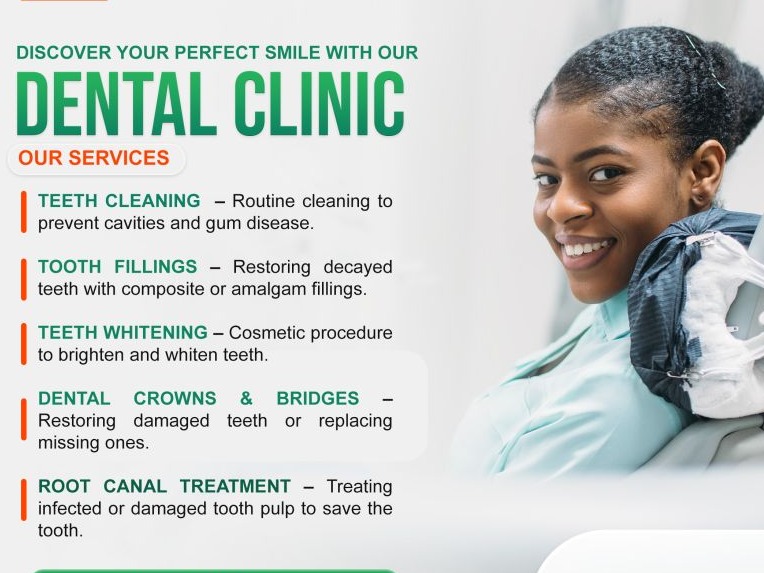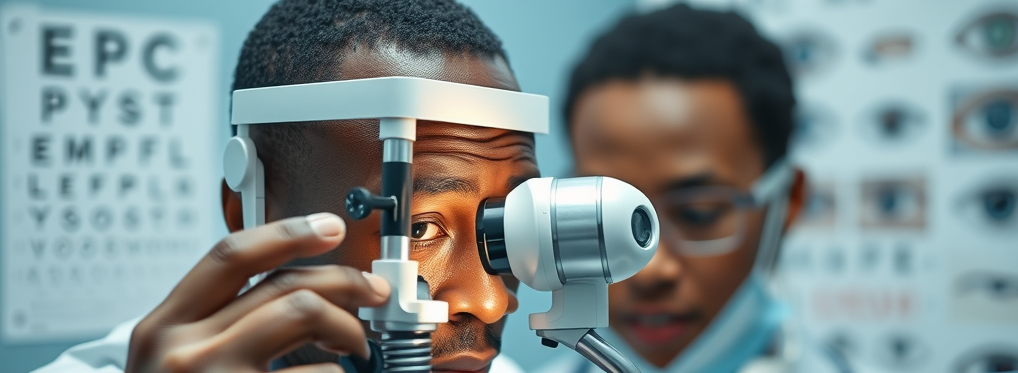Did you know that bleeding gums could be the first sign of heart disease? New research reveals that your oral health is deeply intertwined with the health of your heart, eyes, skin, and more, and early detection could save your life in ways you’d never expect. For Ugandans, this means your next visit to a specialist could uncover health risks you never imagined.
Surprising Connections in Specialist Care Uganda: Opening with a Real Patient Story
At Case Clinic Kampala, unexpected discoveries in patient care are becoming the norm rather than the exception. Take the story of a patient who sought dental care for persistent bleeding gums. What began as a routine visit soon led to a life-changing diagnosis. During her appointment, the dentist noticed suspicious patterns that didn’t fit the usual profile of gum disease. Instead of dismissal, the dentist referred her to a cardiologist at the clinic, who conducted a comprehensive examination that revealed early-stage heart disease. Had the dental symptoms been ignored or treated in isolation, her heart condition might have gone undetected until it was too late. This story reflects the growing recognition of medical connections Case Clinic specialists see every day—a recognition that is changing how specialist care in Uganda is delivered.
By building bridges between disciplines, from dentistry to cardiology, Ugandan patients are experiencing the real-world benefits of connected health. Real patient stories like these highlight the importance of integrative, specialist-driven care for early detection of chronic diseases, transforming traditional approaches to health in Kampala and beyond.

"I went to the dentist for bleeding gums, but a referral from Case Clinic revealed I had early-stage heart disease. My specialist care saved my life." – Patient testimonial, Case Clinic Kampala
What You'll Learn: Exploring Medical Connections at Case Clinic
How oral health can be a window into your heart health
What your eyes can reveal about chronic disease and diabetes
Why skin changes can point to deeper internal conditions
The importance of comprehensive and preventive specialist care in Uganda
The Hidden Web of Health: Understanding the Connection Between Oral Health, Chronic Disease, and More
The human body is a masterclass in interconnected systems. For many in Uganda, recognizing that an issue in one area, like bleeding gums, may signal deeper health problems elsewhere is just the beginning. At Case Clinic and among Uganda’s growing community of health specialists, there is an increasing awareness that diseases no longer sit neatly in their own “boxes.” For example, the connection between oral health and chronic disease is supported by wide-reaching medical research, with studies showing how inflammation in the mouth may trigger systemic inflammation, impacting the arteries and heart.
Comprehensive health Kampala demands a new way of thinking: one where every specialist, from the dentist to the dermatologist, collaborates to form a complete picture of a patient’s health. Culturally, many Ugandans have traditionally seen medical care as focused either on general health or specific complaints, but this is changing. Now, an integrated approach is seen as the best way to achieve early detection and effective management of chronic diseases, something especially important given the high burden of non-communicable diseases in Africa. At Case Clinic, medical connections are no longer a curiosity, they are part of the standard of care.
Medical connections Case Clinic specialists observe daily
How one symptom can relate to multiple chronic diseases
-
The cultural perspective on integrated health in Uganda

"Overlooking small health signs can mean missing bigger issues. Our team works together to spot these connections early." – Dr. Vanessa Katungi, Cardiologist, Case Clinic
Dental Health equals Heart Health: The Link Between Oral Health and Chronic Disease
Most Ugandans may not realize that the link between oral health and heart disease is not just anecdotal—it's grounded in science. Poor oral health, especially periodontal disease (a chronic infection of the gums), is widely recognized as a risk factor for heart conditions. When gum disease is left untreated, it causes continuous inflammation, prompting an inflammatory response throughout the body. This inflammation can contribute to the buildup of plaque in arteries, a leading cause of heart disease and stroke. Dental care, therefore, is no longer just a matter of aesthetics or comfort: it's a frontline defense in Uganda’s battle with chronic disease.
The need for specialist care Uganda becomes even clearer considering these connections. At Case Clinic, when a dentist detects periodontal disease, protocols require a collaborative review with cardiology counterparts. By sharing medical records and synchronizing care plans, regular dental checkups become powerful opportunities for preventive cardiology, sometimes detecting silent issues before symptoms appear in the heart. This medical synergy is reshaping how Ugandans perceive the dental chair: it's now a critical checkpoint for systemic health.
The Link Between Oral Health, Periodontal Disease, and Heart Disease
Scientific research draws a direct “link between oral health and chronic disease,” with periodontal disease emerging as a significant risk factor for cardiovascular complications. When oral bacteria enter the bloodstream through inflamed gums, they trigger systemic inflammation, increasing the risk for atherosclerosis (hardening of the arteries), heart attacks, and strokes. At Case Clinic, both dental and cardiology departments witness this connection frequently. Patients who manage their gum disease effectively show reduced risk for subsequent heart conditions. For the Ugandan health landscape, where cardiovascular disease rates are climbing, awareness and interdepartmental cooperation are critical.
Periodontal disease as a risk factor for cardiovascular issues
Medical research: Poor oral health linked to higher rates of heart disease
Case Clinic’s dental and cardiology collaboration

"Gum disease doesn’t stay in your mouth. It can lead to inflammation in your whole body, including your heart." – Dr. Namuli, Dentist, Case Clinic
Why Regular Dental Checkups Matter for Comprehensive Health Kampala
Prevention is the cornerstone of comprehensive health Kampala. Regular dental checkups offer much more than clean teeth—they’re an opportunity for early screening. Dentists are trained to spot signs of gum disease, oral cancers, and even systemic diseases manifesting in the mouth. When these signs are identified, patients are referred for further cardiovascular or metabolic screening, potentially catching heart disease or diabetes before they become life-threatening. This proactive, multidisciplinary approach means that Ugandan families can access affordable dental care at Case Clinic and benefit from preventive health services across the board.
Detecting heart risk early via dental screenings
Oral hygiene best practices: Preventive tips for Ugandans
Accessing affordable dental care at Case Clinic

How Oral Health Connects to Other Chronic Diseases |
||
Oral Condition |
Potential Related Disease |
Specialist Referral |
|---|---|---|
Bleeding gums |
Heart Disease |
Cardiology |
Tooth loss |
Diabetes |
Endocrinology |
Mouth ulcers |
Immune Disorders |
Immunology |
People Also Ask: What Is the Link Between Dental Health and Heart Disease?
The Connection Between Oral Health and Heart Disease Explained
The connection between oral health and heart disease comes down to inflammation and bacteria. When people develop gum disease, the resulting inflammation can cause arterial plaque to form and affect the cardiovascular system. Poor oral hygiene allows oral bacteria to thrive, and these bacteria may enter the bloodstream, traveling to the heart and causing or worsening heart conditions. Regular dental visits, therefore, serve a dual role—they protect against gum disease and reduce the risk of heart-related complications. In Uganda’s urban and rural areas alike, this knowledge is helping transform oral care from a cosmetic concern to a preventive health necessity.
Inflammation from gum disease can contribute to arterial plaque
Bacteria from poor oral hygiene enter the bloodstream, affecting the heart
Preventive dental care reduces risk of heart complications
Your Eyes Tell Your Health Story: Detecting Chronic Disease through Eye Exams at Case Clinic
Uganda’s growing diabetes and hypertension rates mean that even seemingly minor symptoms must be thoroughly investigated. At Case Clinic, the role of the eye specialist has never been more crucial. Changes detected in routine eye exams can reveal major systemic illnesses. For instance, the blood vessels of the retina are incredibly sensitive to fluctuations in blood sugar and pressure. When optometrists at Case Clinic Kampala spot abnormal retinal changes or swelling, it may be the first visible sign of diabetes or hypertension—sometimes even before the patient is aware of other symptoms.
This inter-specialty vigilance doesn’t just improve patient care; it saves lives. A comprehensive examination can identify chronic diseases early, prompting timely referrals to endocrinology or cardiology. Recognizing these subtle eye signs is now a vital component of comprehensive health Kampala—and a key reason why routine specialist visits shouldn’t be skipped.
Eye Exams as a Window into Diabetes and Hypertension
The eye's tiny blood vessels reflect the overall health of the body, making them a critical window into chronic conditions. Optometrists at Case Clinic have helped diagnose new cases of diabetes in individuals who visited for routine eye strain, using tools to observe retinal changes associated with high blood glucose. In another example, bleeding in the retina revealed underlying hypertension, leading to early intervention and ongoing patient support. Such findings highlight Case Clinic’s commitment to integrative, specialist care Uganda, where optometry works hand-in-hand with other departments. For Ugandan patients, these comprehensive exams provide reassurance and protection against often silent but serious diseases.
Retinal changes indicating elevated blood sugar
Case study: Early diabetes diagnosis from routine optometry visit
The role of eye specialists in comprehensive health Kampala

"Diabetes often shows up in the eyes before anywhere else. Regular checks can save your sight—and your life." – Dr. Semanda, Optometrist, Case Clinic
Eye Changes and What They Could Mean |
||
Eye Change Detected |
Possible Condition |
Specialist Action |
|---|---|---|
Blurred vision |
Diabetes |
Endocrinology referral |
Retinal bleeding |
Hypertension |
Cardiology referral |
Yellowish eyes |
Liver disease |
Hepatology referral |
People Also Ask: What Is the Link Between Dental Health and Overall Health?
Dental Health as an Indicator of Overall Chronic Diseases
Dental health is no longer just about teeth—it's a key indicator for chronic diseases like diabetes, respiratory illness, and even immune disorders. Research shows that chronic gum disease can worsen insulin resistance in diabetic patients and is associated with an increased risk of stroke and respiratory infections. The multi-disciplinary approach at Case Clinic ensures that patients with oral conditions are screened and managed for coexisting chronic conditions, thus closing the gap between dental and medical care. As communities across Uganda grow more aware of these links, demand for collaborative, specialist care Uganda continues to rise.
Oral health can signal problems in other organs
Chronic gum disease connected to diabetes, respiratory issues, and stroke
Specialist care Uganda: Multi-disciplinary approach at Case Clinic
Skin: Your Health’s Early Warning System and Signs of Chronic Disease
The skin, our largest organ, is a powerful messenger. At Case Clinic, dermatologists play an essential role in uncovering the hidden connections between visible skin changes and deeper health problems. Sudden skin rashes, persistent discoloration, or bumps may signal autoimmune disorders, liver malfunctions, or changes in blood sugar levels. In Uganda, where environmental factors and cultural perceptions shape health-seeking behavior, awareness of the skin’s diagnostic role is growing. When you visit a skin specialist at Case Clinic, you’re not just getting a topical remedy; you’re being screened for possible internal concerns.
Common Skin Changes That Signal Internal Health Conditions
Dermatologists at Case Clinic frequently see cases where skin changes prompt further investigation and specialist referrals. For example, yellowing of the skin or eyes (jaundice) can point to liver disease, while darkened patches can suggest diabetes or hormonal imbalances. Their role in the medical connection Case Clinic strategy means that patients with unusual skin symptoms may be referred to hepatologists, endocrinologists, or even cardiologists. Early intervention leads to improved outcomes—not just for the skin problem, but for the chronic disease lurking beneath.
Skin rashes indicating autoimmune or infectious diseases
Discoloration pointing to liver, kidney, or blood sugar issues
Dermatology as key in the medical connection Case Clinic approach

"Some of our patients are surprised to learn that a skin issue can mean checking their liver or blood sugar. The body is connected in amazing ways." – Dr. Mugisha, Dermatologist, Case Clinic
People Also Ask: Is Alzheimer's Disease Linked to Poor Dental Health?
Emerging Research on Poor Oral Health and Alzheimer’s Risk
Medical science is increasingly identifying chronic oral infections as potential contributors to Alzheimer’s disease. Chronic gum disease allows bacteria and inflammatory compounds to enter the bloodstream and even reach the brain, increasing the risk of cognitive decline. Recent studies suggest that poor oral health may accelerate neurodegeneration, particularly in aging populations. While more research is needed, preventive dental care remains essential for Ugandan seniors—good oral hygiene is not just for healthy smiles, but may also play a significant role in preserving memory and overall brain function.
Chronic oral infections may increase inflammation in the brain
New medical studies link gum disease to cognitive decline
Importance of preventive dental care for aging populations

Case Clinic’s Connected Care: Integrated Specialist Care Uganda for Comprehensive Health Kampala
At the heart of Case Clinic’s philosophy is a commitment to integrated specialist care Uganda. Patients benefit from a network of experts, dentists, cardiologists, endocrinologists, dermatologists, and more, who regularly review cases together to ensure complex health issues are caught early. This model makes referrals and cross-specialist screenings the norm, not the exception. For Ugandan families, especially those in Kampala, this means they can access complete, affordable, and swift health interventions under one modern roof, without the usual delays or confusion.
How Case Clinic’s Specialists Work Together
Patients at Case Clinic are often surprised by the collaborative approach to diagnosis and treatment. For example, a child presenting with a persistent rash may have their case reviewed not just by a dermatologist, but by the immunology and endocrinology teams as well. Such multi-specialist patient case reviews ensure that nothing is overlooked. Integrated screenings for oral health, eye health, and cardiovascular risk are available to every Case Clinic patient, simplifying the process of expert referral and improving outcomes. This connected system is helping to redefine comprehensive health Kampala as a national example.
Multi-specialist patient case reviews
Early detection via integrated screenings
Making referrals easy for Ugandan families

"When our dentist spots a warning sign, our patient can immediately see the right specialist at Case Clinic. This is comprehensive health, under one roof." – Case Clinic Medical Director
People Also Ask: What Are the Mouth Prevention Measures?
Best Practices for Preventive Dental Care in Uganda
Maintaining good oral health in Uganda requires practical preventive strategies that anyone can follow. Brushing twice daily with fluoride toothpaste and flossing helps remove oral bacteria that can otherwise enter the bloodstream and affect your heart, eyes, and even brain. Regular dental visits enable early detection of problems and the reduction of chronic disease complications. Ugandan diets often contain starchy foods, so limiting sugary snacks and maintaining a balanced nutrition plan can help. At Case Clinic, educational programs ensure that families of all backgrounds learn to prioritize preventive oral care and know when to seek specialist help for more serious or systemic symptoms.
Brush twice daily and floss to remove bacteria
Regular dental visits for early detection
Diet and lifestyle advice tailored for Ugandan patients
Accessing affordable specialist care at Case Clinic

Video: The Top 3 Medical Connections Every Ugandan Should Know (Produced by Case Clinic)
Key Takeaways: Why Specialist Care Uganda Needs a Multi-Disciplinary Approach
Small symptoms can reveal major bodies system problems
Integrative care leads to early detection and better outcomes
The future of health in Kampala lies in comprehensive, specialist partnerships
FAQs: Connected Health and Specialist Care Uganda
How does comprehensive health Kampala benefit families?
Comprehensive health in Kampala provides families with coordinated screenings, easier referrals, and access to specialists under one roof. This saves time, reduces costs, and ensures health concerns are detected early for better outcomes.What are common warning signs that need specialist attention?
Warning signs include unexplained bleeding gums, persistent skin rashes, blurry vision, sudden weight changes, or unusual fatigue. These symptoms may be linked to underlying chronic diseases requiring immediate specialist evaluation.Can traditional healing methods be safely combined with specialist care?
Yes, but it is important to inform your healthcare provider about all remedies being used. Case Clinic specialists respect cultural approaches and ensure that treatments are safe and do not interact negatively with prescribed medicines.Where can I find affordable specialist services in Uganda?
Case Clinic Medcare Services offers multi-specialist screenings and treatment at accessible rates. Visit https://casemedcareservices.org or call for appointments.
Conclusion: Embracing Comprehensive Health Kampala for a Healthier Uganda
Connected health transforms lives – but only when all disciplines work together
Case Clinic is pioneering this integrative model for Ugandans
Prioritize checkups in multiple specialties for a proactive approach
Call to Action: Discover Case Medcare Services Uganda
Experience the future of specialist care Uganda: Book a screening at https://casemedcareservices.org
Sources
Understanding the intricate connections between various aspects of health can lead to early detection and prevention of serious conditions. For instance, the American Heart Association’s article “Oral Health” highlights how bacteria from the mouth can enter the bloodstream, potentially leading to heart conditions. (heart.org) Similarly, the MedlinePlus Medical Encyclopedia’s entry on “Diabetes eye exams” explains that diabetes can damage the small blood vessels in the retina, emphasizing the importance of regular eye exams for early detection. (medlineplus.gov) By recognizing these connections, individuals can take proactive steps toward comprehensive health care.
 Add Row
Add Row  Add
Add 
Write A Comment